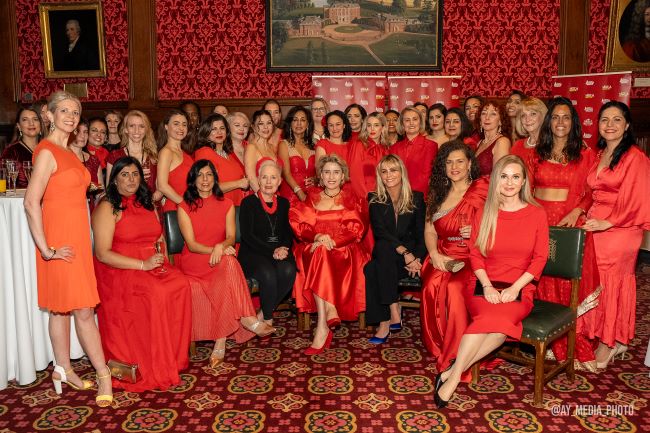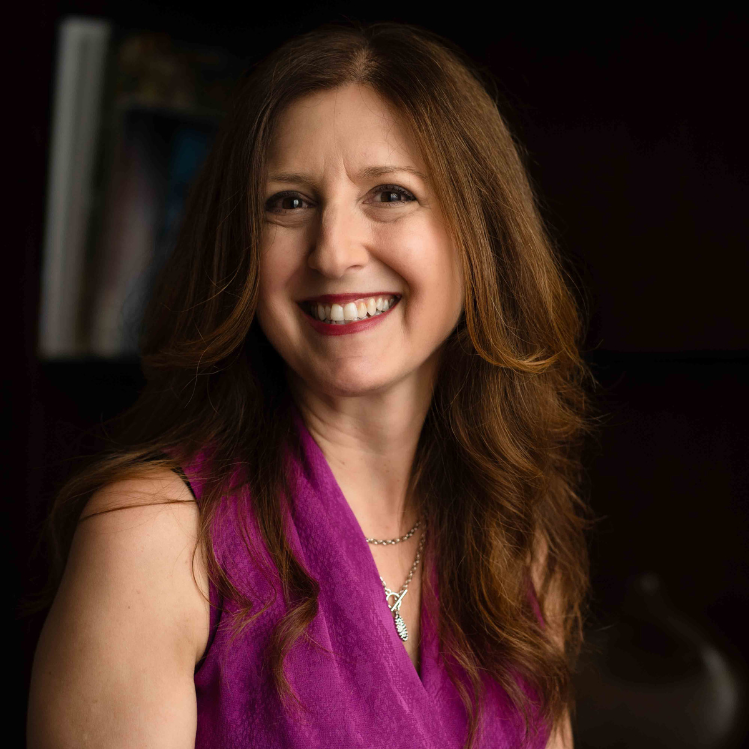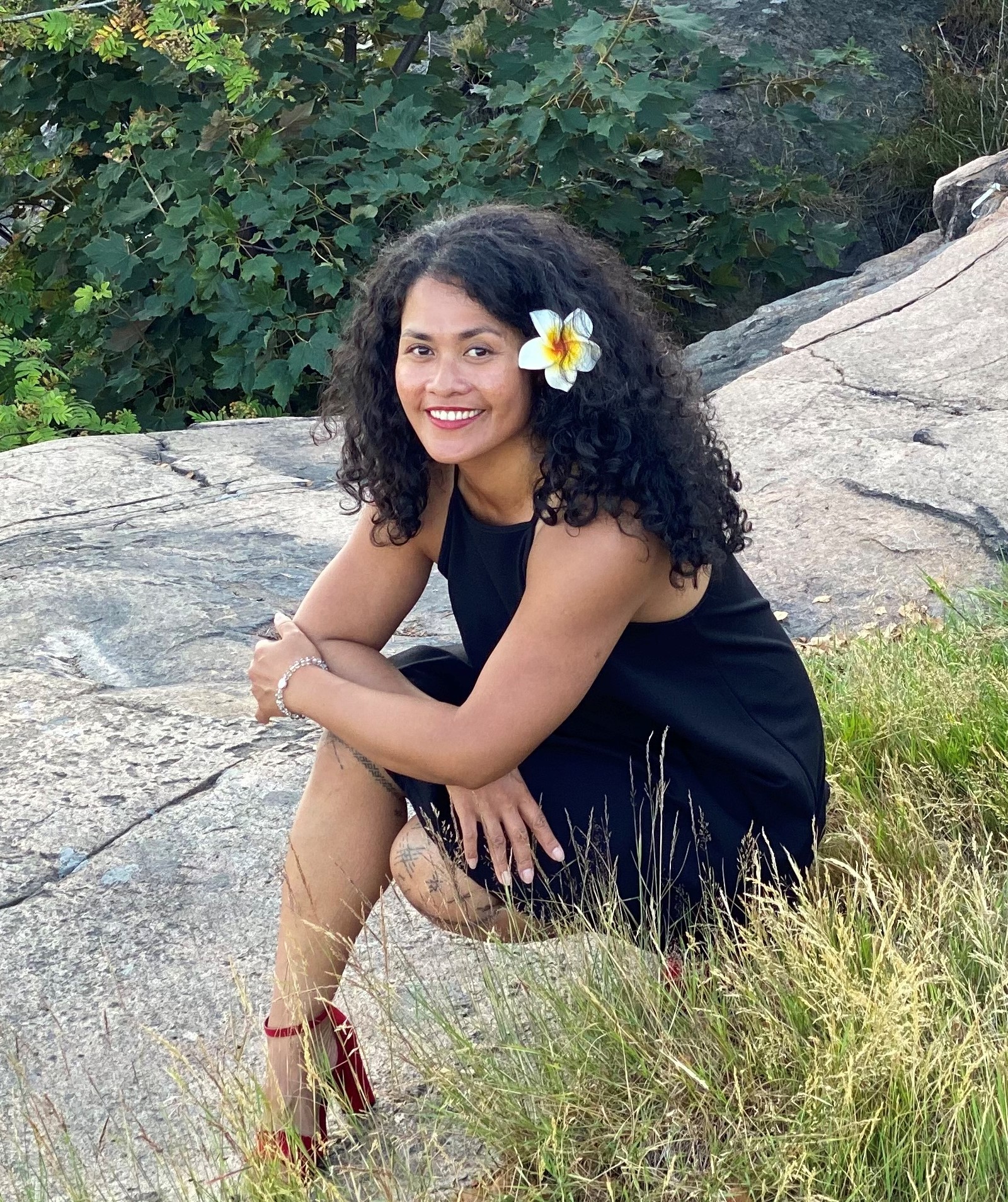
Lucy Larsson: Create Your Own Paradise
Leaving her paradise in Samoa to find her own paradise in Sweden, Lucy Larsson’s journey has taken her across oceans from New Zealand, Germany, Denmark, Kosovo, France, Morocco to Vietnam. With a challenging path into the Swedish society, overcoming the language barrier and obstacles in her career, Lucy emphasises the importance of prioritising yourself, daring to look ahead and taking a leap of faith to change your life around. With courage and determination, she has today gained more than 16 years of experience in leading roles in HR & training development in companies and organizations including the UN, Swedish Civil Contingency Agency (MSB) and the Swedish Armed Forces. A girl from a small village in Samoa became a driven and brave woman, leaving her 9 to 5 job to become an entrepreneur with a mission to help immigrant women create their own paradise.
How was your childhood in Samoa, and how has it shaped who you are today?
Obedience, Discipline and Respect are important words from my childhood. As a child, I learned to sit down and talk with my elders – the words of my parents and the people older than me were more important than mine. “Don’t be cheeky, he/she is older than you”. These are the words I constantly heard throughout my childhood when I tried to outsmart my older siblings, cousins, relatives, and older students in school. Anyone disobeying these norms gets punished, either a backhand on the cheek or a good hiding. Yes, I received these punishments several times. I became upset, angry, and ashamed. Then I learnt out of fear not to disobey and disrespect the people older than me.
As an adult, the backhand and the good hidings do not matter to me, but of course, no one deserves it. I believe the teachings about forgiveness during my upbringing in Samoa helped me heal and not hold these punishments against anyone. Today, I am a proud role model of good disciplinary behaviour for my children and the people I meet in life.
As a child, I learned to say my prayers every morning, before every meal, and before I went to sleep. It’s a spiritual practice my parents have done all their lives, and they are still doing today – praying and practically mentioning each person close to their hearts. Even the line of Prime Ministers over the years in Samoa, my parents include them in their prayers to uplift the country they cherish and love. In my early forties, as I re-embarked on my spiritual journey, I came to finally understand the true meaning of my parents’ commitment to their prayers. A time to be on my own and turn inwards to find answers no one can provide.
“Education is the key to success.” This is one of the many mantras my parents followed. My father was the sole income provider of the family. My mother gave up her career as a nurse to pursue her role as a wife and a mother. Education was always a top priority for my parents. When I came home after school, I was expected to do my homework, read a book, and do my chores around the house. Playing with friends is what I did in school and during church activities, and at times I think my parents did not allow me to have fun during my childhood. After I became a parent, I realised there is no manual for parenting. Every parent does the best they can to do right by their children. Sometimes it works out well, and sometimes the opposite. What I have learned from my parents is how to invest in your children’s education.
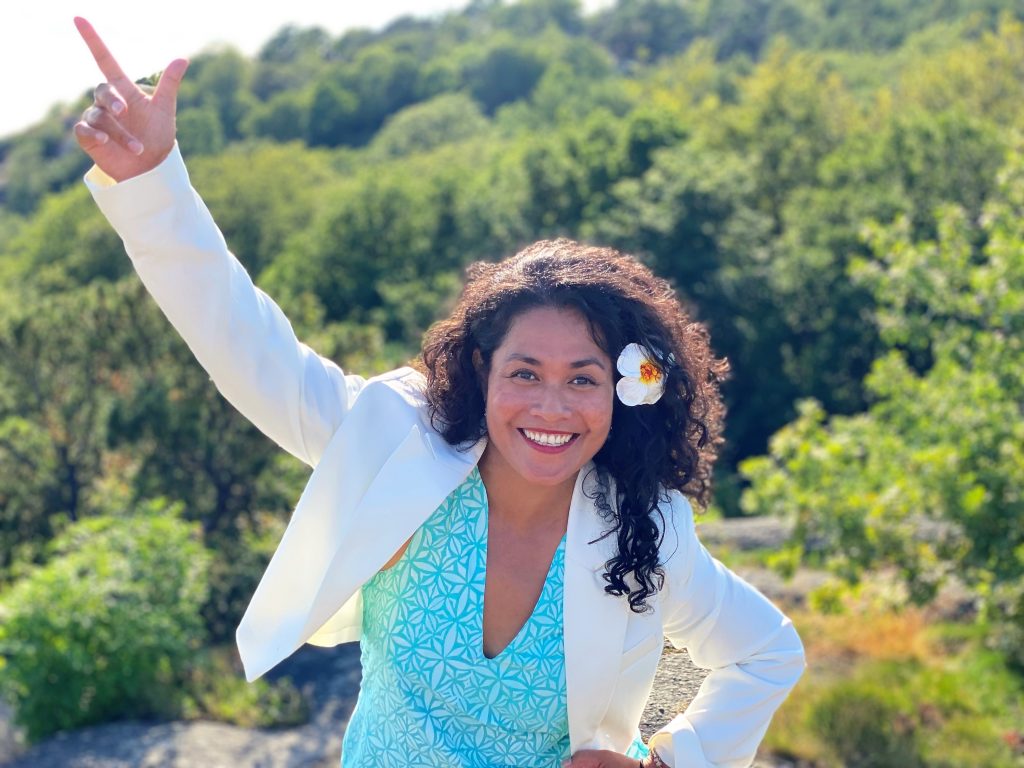
You left Samoa and travelled to New Zealand to pursue your education before finally moving to Sweden to find your own paradise. How did you navigate this shift in culture and environment?
When I left Samoa at the age of 18, my father said,” E lele le toloa ae maua i le vai”, “The Pacific grey duck soars away, though always returns to the water”. It means wherever you go, far or near, you can always go back to your roots, your family, culture, and heritage. To return home is always an open invitation which gives a strong sense of homecoming and belonging.
It is truly a warm reminder and comfort for me. Whatever I go through in life, I will always return to myself, my values, my identity, and my family. These are the cornerstones that hold me to the ground when navigating through the different shifts in life. My children are my family. I can be vulnerable and strong in their presence, showing them how integrity always starts with yourself. Be true to yourself and stand by your values.
I used to believe that my identity was solely being a Samoan. I have learned that being Samoan is only a small part of my identity. Tapping into my identity is much more – my dreams, my ambitions, visions, my knowledge, my gifts, my experiences, my stories of failure and success, etc. Learning to know more of who I am, what I stand for, and what I want has been helpful to navigate the shifts in culture and environment during my adventure through the many different countries.
You have travelled to numerous countries from Denmark to Vietnam. How has each country influenced your way of living? What has travelling taught you?
Travelling is about learning, and I have learned so much, for instance, gratitude. Far too many times, I have taken things for granted. The small things, for example, not finding the other sock or not finding the lighter for candles can make me go crazy. But why and for what? On our bicycle tour in Asia, we were mostly in rural areas. Many of the people in the villages do not have much. Their homes are small, and their way of living symbolises simplicity. In front of their homes is a small food stall under a tree, where they sell fruits and cold drinks. Several hammocks hang under the tree for customers to rest if they wish. Most people have their electric fans outside under the tree to cool down from the heat of the sun.
Thinking about how to protect my children from being dirty and eating dirty is one of the challenges during my travels. Visiting countries Vietnam, Laos, Cambodia and Thailand has taught me that children are meant to be exposed to a way of life that is both clean and dirty. I saw many children in the small villages out in the rural areas. They are doing fine and living life mostly outside their houses. It reminded me of how I grew up in Samoa. Why was I so protective of my children and fear that they would get sick?
The different cultures in the countries I have visited has made me appreciate my own culture even more. I came to realise that every culture is unique, and there is only one Samoan culture, just like I am the only Lucy Larsson of my kind. Diversity enriches our lives, and my advice is to embrace and learn. If you don’t like it, let it be for someone else.
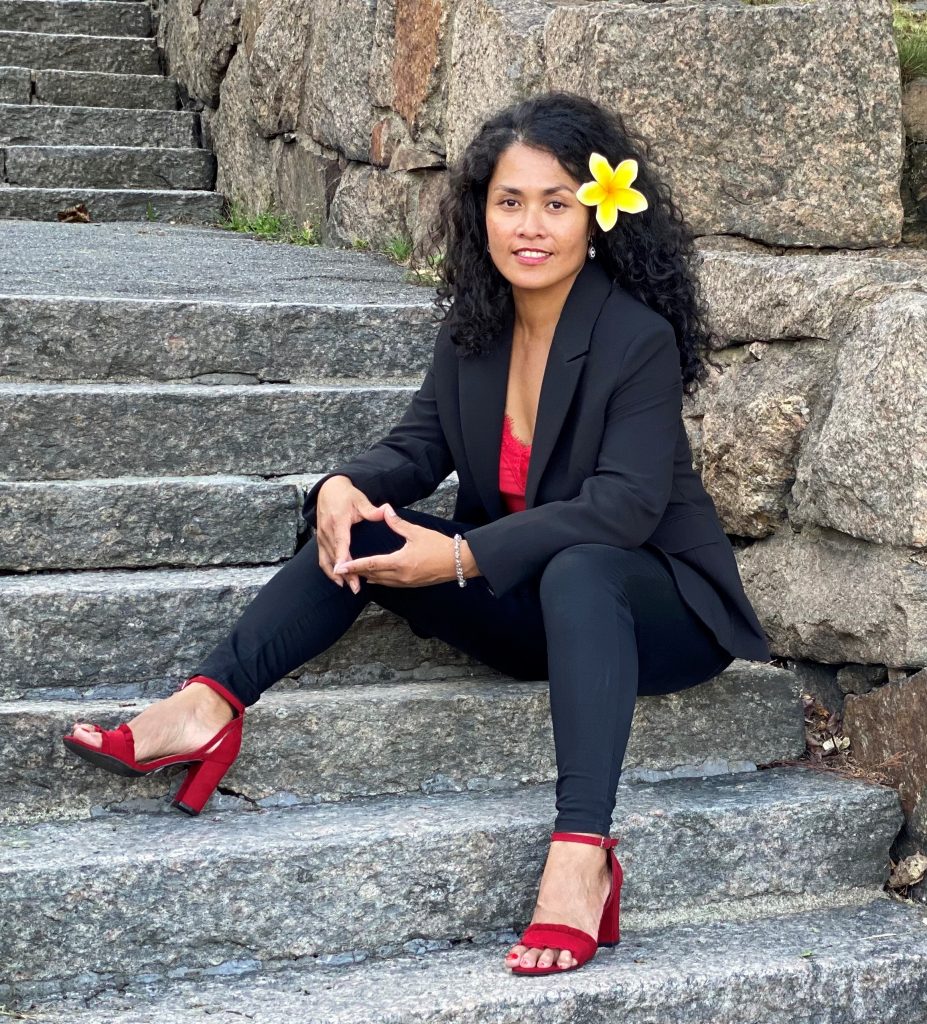
You took the courage to transition from employee to entrepreneur, leaving your 9-5 job to help immigrant women work with their passion and create their own paradise. Starting an entrepreneurial journey is a daunting decision. Can you tell us more about this journey and your mission?
Sometimes things happen to us in life that pushes us to make the boldest move which some people refer to as crazy or WOW – “You are brave”. The only thing you must hold onto is your faith and belief in yourself. When someone reaches this point, it means his/her core has been shattered, and the healthiest thing to do is to walk away. I have reached this point.
I don’t think it’s a daunting decision when you know and feel it in your body that this is the way to continue your journey. I saw an opportunity and a challenge. I did not have a plan. All I knew and was certain about was that I needed to get out. My two driven psychological needs are development and service or helping others. Satisfying these needs keeps me motivated and staying in balance with my emotions and thoughts. Who can give me this satisfaction? No one else but myself. So, I decided to take a leap of faith and give myself a chance to explore my potentials and challenge my comfort zone.
I questioned my values and what I stand for. I asked the many WHY questions, including being a woman and an immigrant. It made me wonder how other immigrants in Sweden are doing in their careers and lives. I have come this far in my career. With all the accumulated experience and knowledge, perhaps I could use it more. So, I chose to niche my coaching business to work with immigrant women in Sweden. I am the living example of moving to Sweden, learning the language, getting a job, integrating and still, I am going strong in holding on to my Samoan culture and heritage. We can learn and integrate into Swedish society without losing who we are and where we come from. It is a blessing to have both because it is enriching and empowering.
A recent study on “underemployed highly skilled migrants in Sweden” mentioned that many immigrants find themselves in a language trap. They study Swedish language courses. Why? Because that is society’s norms. To get a job, you must speak perfect Swedish. I got a job without having to speak perfect Swedish, and I know many people who did the same. In my line of work as a coach, I want to get rid of this trap because I know it is not true. We need to strengthen our self-leadership and our mindset to be able to be driven and be motivated to find creative ways to follow our hearts, live our dreams and work with our passion. This is my kind of paradise.
You have gained more than 16 years of experience in leading roles in HR & training development. What challenges have you had to face in your career journey?
When I arrived in Sweden about 17 years ago, I was told, “You must speak Swedish”. Although I did learn the language, it has been one of the challenges in my career when it comes to communication.
Being an immigrant woman has played a role in my career development. The Swedish mentality is to ensure that people are seen, are included, and everyone gets the same level of attention regardless of their efforts and work. It sounds great, however, sometimes I found it limiting my potential for personal growth.
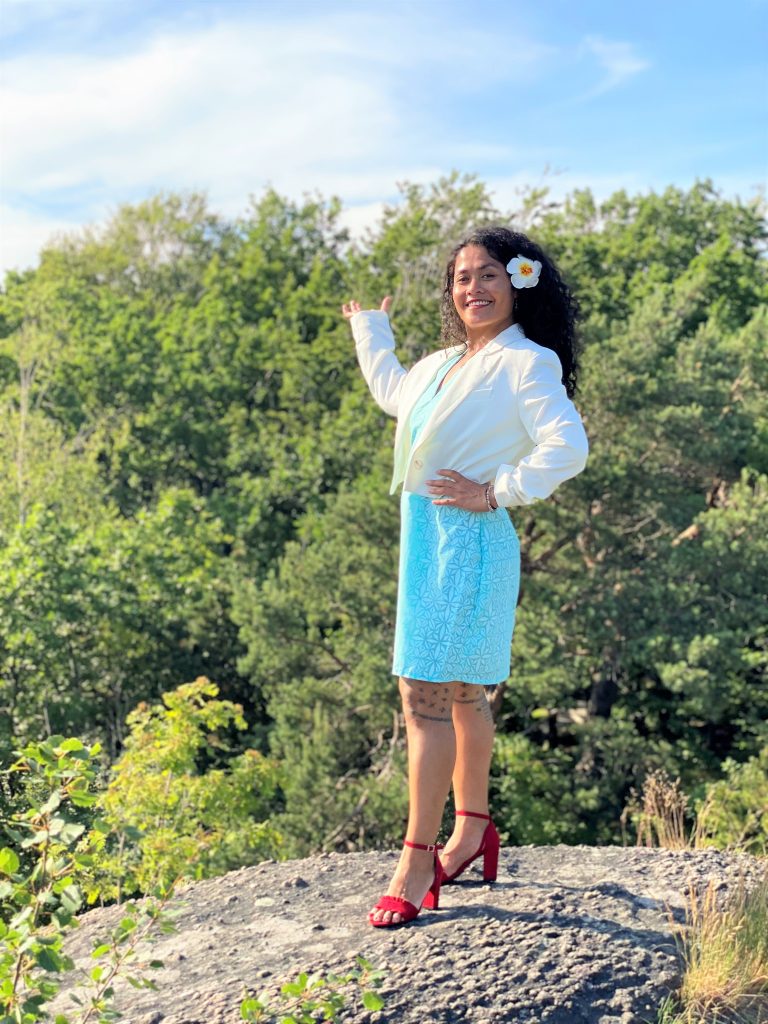
You have done numerous talks, and I’m sure there’s more to come but what I found is interesting is that you use the element of dancing as well as storytelling in your talks. Can you tell us more about this? What is the Samoan dance?
Every Sunday, my family gathers for evening prayers and fagogos, stories of the night. It is an evening where we prepare ourselves for the new week ahead of us. To create a more peaceful atmosphere, all the lights are turned off, and we sit in a ring on the floor. I never got to ask why we turn off the lights, but I remember it as a meditative moment. My parents would share a variety of stories from the bible, advice and words of wisdom and other stories in the family and the village.
During the Samoan lectures in school, my friends and I sat on the floor in a Samoan traditional house without walls and listened intently to our Samoan teacher sharing legends and myths from the Samoan culture as well as from other islands in the Pacific. Our teacher was an old man in his sentries. He was known for the sharpness and richness of his words. His dark deep voice captivated the audience as well as scared the students’. He told stories almost without any filters which made it more amusing and exciting. No one dared to come late to his class. I feared him like many other students, but no one missed his lectures because everyone wanted a good laugh. His teaching was a combination of storytelling and lots of humour, which made learning more interesting. The storytelling techniques he used made me feel like I was in the war zone of Nafanua, the Samoan goddess of war. He captivated the audience and made us want more and more. Storytelling is a part of my life, and it draws me closer to my roots. It is part of me, and I would like to share it with the world.
Samoans are born with dance in their bones, blood, and flesh. Dance brings people together for celebrations. Dance is also a way to embrace emotions about the beauty of life, nature and people. I grew up loving to dance and perform in church. To dance is to let go and heal. When I travel from country to country, I always have something to share. When I share my story and dance, I inspire and help others to learn about another culture, experience, and life lessons.
Samoan dance today is a mixture of the old and the new. It is very distinct in its style, and dance movements are influenced by different dances from other islands in the Pacific. The dance is performed with graceful and fine movements. There are variations of slow, fast, and fluid movements where the dancer tells a story with her/his hands and slides across the floor. Samoan dance is about joy, love, inspiration, and togetherness.
What inspired you to participate in this book project, and how has the book project experience been for you?
We often look outside for inspiration. We would turn to books, attend many courses, visit a friend, watch a movie, etc. Nothing really worked. Then I realised, what if I turned within for inspiration. I ask a simple question: What more am I capable of? I don’t know yet, was my answer. If I don’t give it a try, I will never find out.
I have never liked writing in school, and I have been avoiding writing articles since then. However, I took a leap of faith and dared to put myself out there. If I coach other women to be daring to make a bold move and trust in their abilities that they can be anything they put their minds into, I should be doing it too. I walk the talk, and I do as I preach.
I believe in the richness of a multicultural society that is enriched by many different cultures and nationalities. Each one of us has a unique story to tell, and each story has many life lessons to build and strengthen our communities and societies. I want to be a voice for many who made a similar journey to establish and build their lives in another country that is not their own. You do not have to go through a dramatic experience for your story to be credible because you are You, and You are incredible as you are. Global Woman’s book project provides an opportunity to share my voice and my story. A platform that uplifts others, and a platform to grow and glow. It is truly a great inspiration Mirela Sula has given to me and thousands of other women. I am grateful!
The book project has taught me a long-lasting life lesson. You don’t have to be good at writing to become an author. Your story is worthy to be told. You make the call and reach out for support and help. All you need is a trustworthy team to guide and help you along your journey. Global Woman creates opportunity and make available a platform lead and run by amazing and intelligent women with a diverse background. Women that are role models lead other women to tap into their power and conquer their fear. Forever grateful for the endless support from Kicki Pallin and Giovani Vega in the book project.



